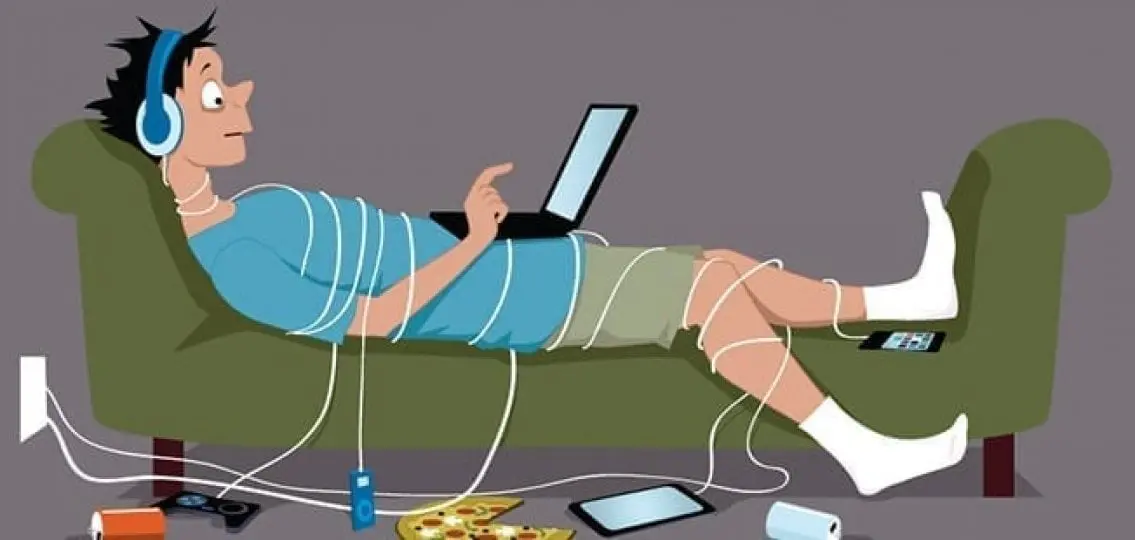My 16-year-old son is an addict.
I know he’s an addict because of the first thing he reaches for every morning, and all day long; it’s the thing he never wants to put down at night and sneaks into bed hours after his parents have gone to sleep.
His electronic devices. His technology. He has a technology addiction.
Whenever he doesn’t have somewhere to be or something to do, he wants his fix. And he fights like hell if I try to take it away.
In the summer, his first choice is his Xbox, which he uses to play games like Grand Theft Auto (which I hate). During the school year, his game controllers are hidden away in my room. So his first choice is his phone, which he uses to watch YouTube videos or movies (including those I forbid), to play mindless games, to share perhaps too much of his life on social media, and to communicate with friends. His next choice is his computer, which he uses for many of the same purposes, though he sometimes uses it to write programs, build apps, or create music.
Dependence On Technology
I know that I allowed these devices and games to enter our home, even if he paid for them. I resisted the violent games until he was a teenager. Eventually I relented, knowing he would choose to spend more time at the houses of other kids who had those games. At least at home, I can monitor how much time he spends on them.
And that’s where the problem comes in. Like so many parents, I try to control technology, and how much time he spends with his electronics. And it just gets harder and harder as he gets older.
When he’s home and on his electronics, I can get lots of work done. No driving around. He doesn’t bother me—doesn’t even ask me to make him something to eat. But it makes me sick to see him on the couch, hour after hour, staring at a screen.
Screen Time
I feel it’s my job as a parent to direct him to other activities—to get him to ride his bike, or to take care of his chores around the house, or practice music, or do homework. Yet, all attempts are met with serious resistance. The battle is exhausting—I threaten to take the device (or sometimes all of them), and he begs for a few more minutes and promises to do some chore or practice music after he “finishes the game.” I come back 15 minutes later, and nothing has changed. That’s when the yelling starts; the threats turn to physical attempts to grab the phone—and then he usually gets up and digs in his backpack for a school folder or takes some other minor action to get me to leave the phone in his pocket or the game controller on the coffee table.
When I do end up taking all his devices, my confiscation usually achieves the desired effect: he does his chores, practices music, works on homework, eats healthy meals.
But there’s the flip side.
When my kids spend time without electronics, they end up running around annoying each other, breaking little things, terrorizing the cats, calling for my help or interference or my expertise in making them food. My productivity decreases drastically, and that’s a problem, whether I’m working from home or just trying to squeeze in more loads of laundry. Some of it can be enjoyable (helping my daughter try a new recipe), but much of the time it is frustrating (coming upstairs for the 20th time to get him to leave her room).
Adults And Teens Addicted To Technology
So what do I do? Just give up my attempts to control their electronic usage? Keep threatening and confiscating and depleting my time and energy to entertain them or keep them out of trouble?
I’ve tried offering rewards. They earn money for chores; we do special things like go out for ice cream when they put down the devices and take care of priorities without getting hassled. But nothing is as powerful as the pull of the glowing screen.
I even issued a challenge: $100 to the kid who can go the most days without picking up any devices. They both thought they could go two or three days. They didn’t even make it one day.
But then again, neither did I. They insisted I do the same thing—stop answering the business calls and texts and emails that pull me to my cell phone or computer hour after hour. I couldn’t do it either.
Hmmmm.
Who has the technology addiction now?
Like so many other parenting dilemmas, perhaps role modeling is the only method that will truly have an effect on my son’s technology addiction. Time to work on my own urge to respond to the next ping or buzz.



